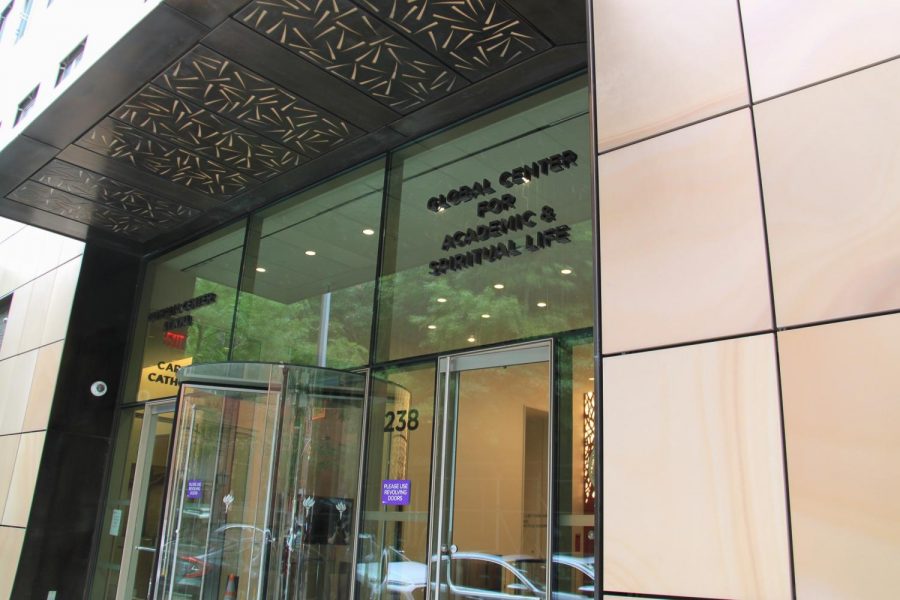Since the beginning of the pandemic, religious communities nationwide learned to adjust to remote services for the safety of their congregations. One year later, with Easter and Ramadan on the horizon, NYU students continue to worship from the isolation of their bedrooms.
“The meeting style hasn’t changed,” Tisch junior Faith Zeng said about her Manhattan church’s Zoom services. “It just feels a little awkward to be alone in your room sometimes.”
Tisch junior Alicia Oh moved back to New York from New Jersey. Instead of attending a local church in person as she normally would, she watches her home church’s prerecorded services on YouTube. She finds peace in rewatching these videos, an ability that live services don’t offer.
“The benefit of having church pre-recorded and everything is so I can go back,” Oh said. “I do find a lot of peace with service and things like that, so always having something to hold on to is really nice.”
However, some religious services are harder to translate to the virtual realm. CAS senior Asma Bawla used to attend services at the Islamic Center at NYU. In response to the pandemic, though, the Friday Jumu’ah prayer was moved to Zoom.
“If the Jumu’ah prayer is not done in person, the same rulings of the prayer don’t follow,” Bawla explained. “The prayer cannot be fully done on Zoom, so you have to make a few modifications to it if you’re doing it at home.”
The solitude of quarantine has deepened these students’ relationships with their faith, which in turn has made them more resilient to the stress of the pandemic.
“I was at home for, like, a full year basically,” Zeng said. “I have no siblings, just me and my parents, and it’s just very isolating. But because of the Lord, I just felt so much peace, and I never felt really alone because He was just always there.”
“It’s like a core of my own strength, mentally, emotionally and things like that,” Oh added.
On the other hand, some students miss the sense of community that came from attending in-person religious services.
“[The ICNYU] was really a big part of my sense of community as a student at NYU, where like, the school is so big and the Muslim community is so big,” Bawla said.
As the Vice President of the Muslim Students Association, Bawla has struggled to recreate that experience online.
“It’s been really hard to adjust the freshmen and create that sense of community when everything is virtual,” she said.
Oh feels the same sense of loss.
“A huge, huge part of my church back at home is that we would always have a couple of hours of fellowship and hanging out with each other, but now it just feels like people are struggling to hold on to our faith,” she said. “It’s harder to connect. We don’t know where people are at.”
Despite the challenges, remote religious services created new opportunities to strengthen religious communities in other ways. Zeng’s home church in Washington D.C. participates in summer conferences, and under normal circumstances, the connections she makes there would end when she returns home.
“One of the things I’ve noticed is like, because of the pandemic, we are actually reaching out to those people at the conferences more and staying connected more,” Zeng said.
Meanwhile, the MSA hosted meaningful online events, including fundraising for communities affected by COVID-19. The virtual format has allowed people to contribute from all over the world.
“One of the ways that, you know, you can feel better, or that you can give back to the community is by raising money for people who have lost their jobs or are in food insecurity, whether that’s affecting them in America or in another country,” Bawla said.
Despite their eagerness to return to in-person services, all three students agree that they will wait until they’re vaccinated — or perhaps even longer.
“It’s something that I’m willing to wait for, even though it’s something I really miss,” said Bawla.
Until then, these students will continue to redefine what a religious community means from in front of their screens.
A version of this article appeared in the Monday, March 29, 2021 E-print edition. Email Sabrina Choudhary at [email protected].






















































































































































